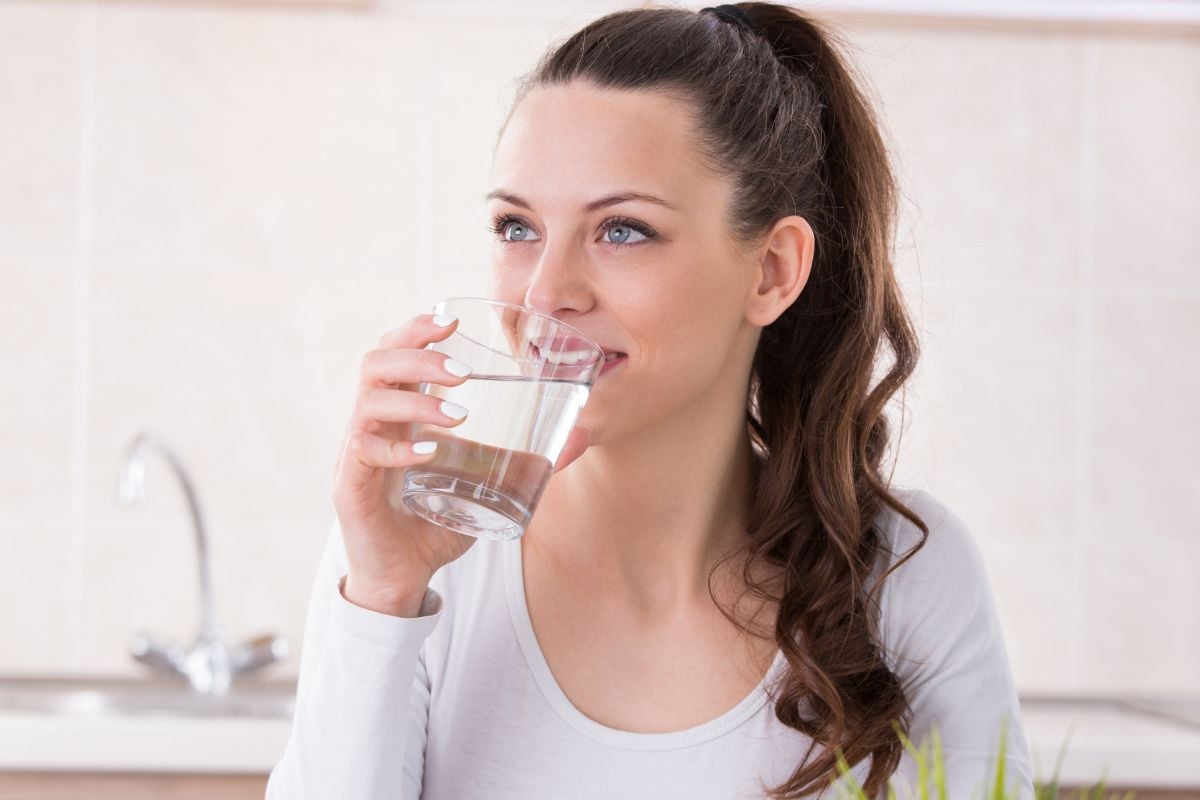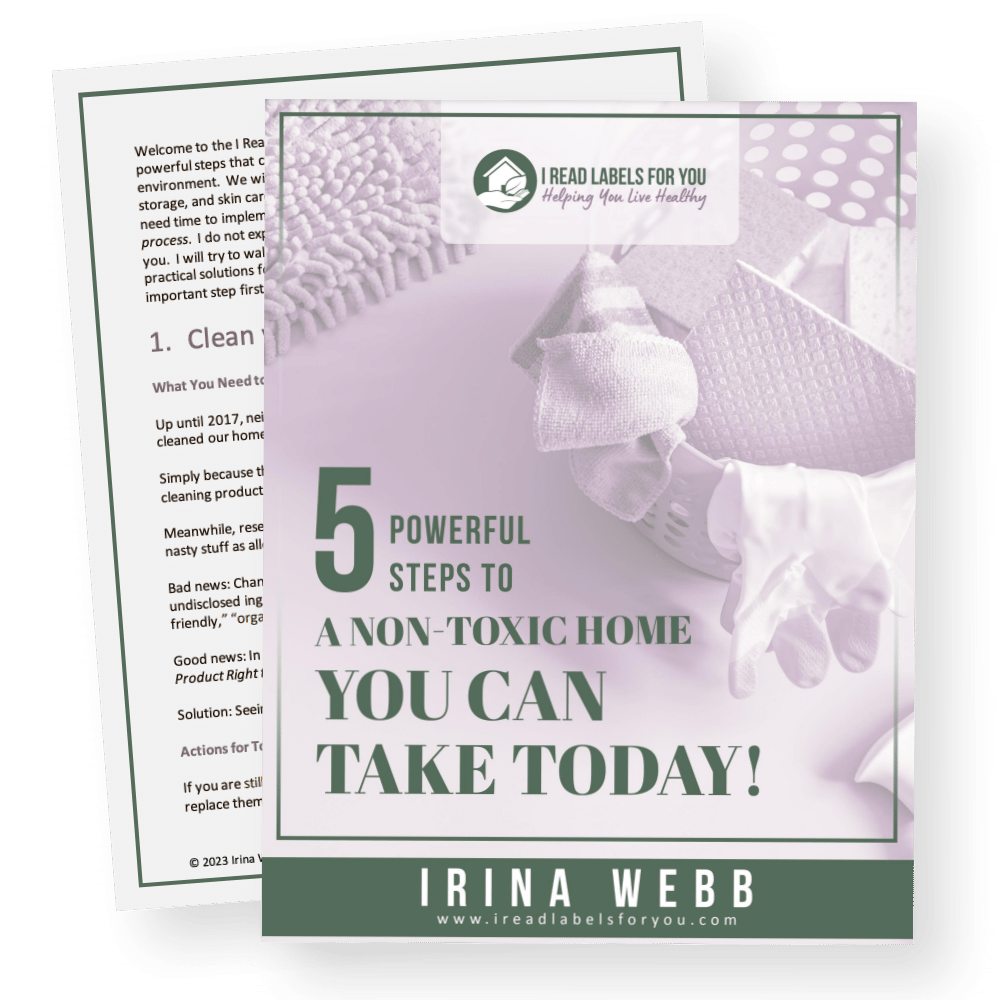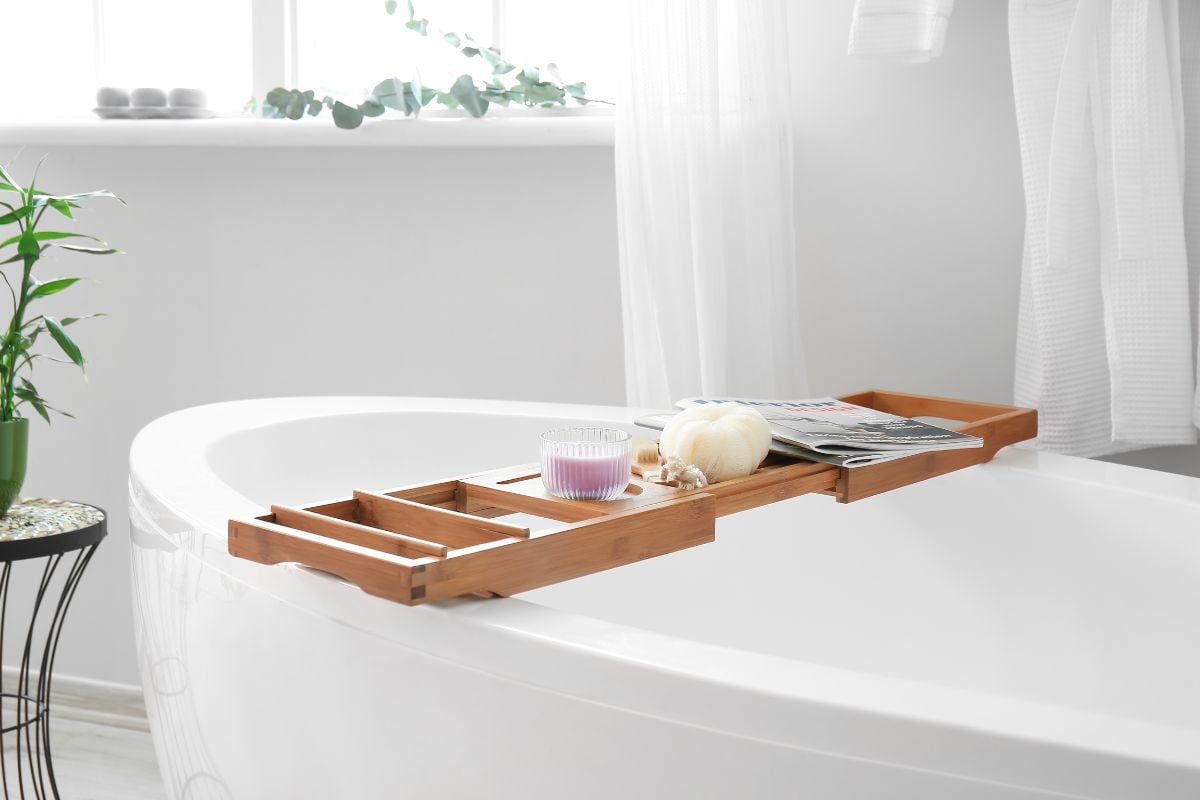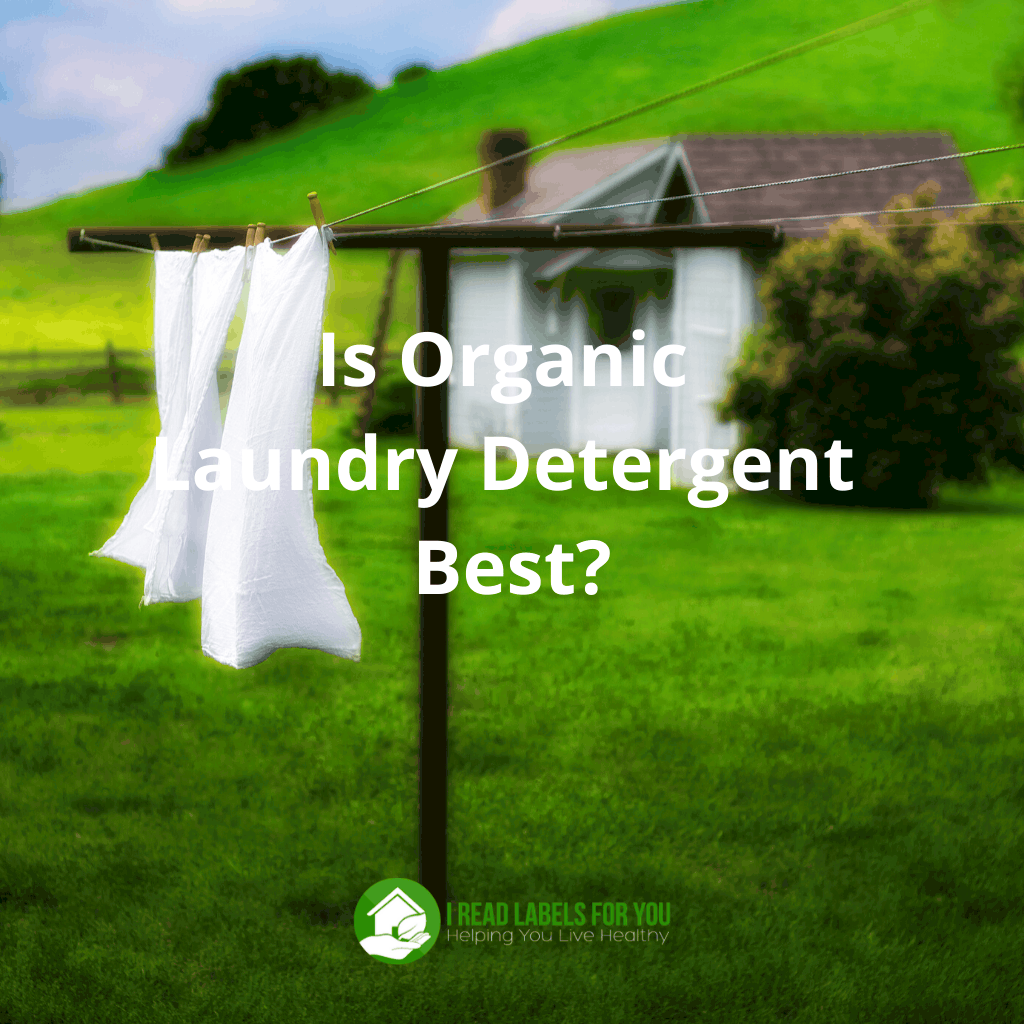How To Test Your Water Quality At Home

What’s your water source – municipal, well, spring or rain water? It’s important to understand that even tap water that was treated at a water treatment plant may still have impurities that will affect the quality of your drinking water. Remember the Flint water crisis and Charlotte-Mecklenburg school water crisis when the drinking water turned out to be contaminated with lead?
I believe that filtering your drinking water should be an essential step in your journey to your optimal health. But how do you know what type of contaminants you need to remove from your water? Home water testing kits will help you with that. In this post, you will learn about common ways to test your water quality at home. Additionally, you will find out which water quality testing method I’ve used for my water and will be able to select one that will work best for you. To learn more about filtered water, refer to my blog post What Is Filtered Water?.
How To Test Your Water Quality At Home
To start with, records show that since 2004, the water provided to 49 million Americans has had illegal concentrations of arsenic, dangerous bacteria, and even radioactive substances. And 20% of water treatment facilities have violated the Safe Drinking Water Act of 1974. Which is the only government regulation overseeing the safety of our drinking water (source).
One way to know the quality of your drinking water is to look at your local municipal water quality report, or “Annual Consumer Confidence Report.” (You can find yours here.) The first time I saw mine, I needed help understanding what the report was actually telling me. When you read your district’s water report, you should keep in mind it’s not completely unbiased. Indeed, it is issued by the very facility that is supposed to do a good job at keeping your water safe. In addition, the quality of water in the watersheds is not always representative of the water you get in your home. This is because the water from a water treatment plant goes through pipes that may add contaminants (which is what happened in Flint).
Additionally, the EPA’s rules for public drinking water systems do not apply to individual water systems, such as privately owned wells. If you own an individual water system, it is your responsibility to make sure that your water is safe to drink (source).
Some home water quality testing methods include:
- test strips
- color disk kits
- digital devices, and
- home test provided by a certified lab.

Test Strips
This way of home water testing may help with baseline parameters. Such as pH levels, hardness, chlorine, lead, iron, copper, nitrate, nitrite, and some others. The strips work by changing color after being submerged in the water sample. Then, you compare the strip to a chart. Then determine the concentration of the chemical in your water.
On the plus side, test strips are easy to buy and are inexpensive. On the minus side, they test for a limited number of water quality parameters. And are also not considered as accurate as other methods. Indeed, rather than show specific contamination levels, they rely on the user’s interpretation of the strips’ colors.
Color Disk Kits
The kits contain powder or liquid reagent and a color gradient disk to help you read the results. First, you pour some water sample in a tube. And then add some powder or liquid reagent to it. Depending on the chemicals found in the water, it will change its color which you compare to the color on the gradient disk.
Reportedly, the color gradient disk gives more accurate results regarding the concentration of the chemical than a test strip. Also, it involves more technicalities than the test strips. And in the case of testing for microbiological elements, the results will come out after a day or two of incubation time.
Digital Devices
These include luminescence and electrochemical testing instruments. The luminescence devices help with quick screening of bacteria in the water. And electrochemical testers help determine the pH, dissolved solids and salt, dissolved oxygen, and electrical conductivity of the water.
While digital water quality testing devices are more precise than test strips and color disk kits, they are more costly, too. Moreover, it is a good idea to use the help of a professional with proper training to get accurate results.

Test your water quality at home!
My Tap Score
Test the quality of any type of water easily! Email us for a 10% discount code.
Certified Laboratories
If you are seeking the most thorough water analysis, you can send your water to a certified professional lab. The lab services range from standard water scans to see how it compares to EPA drinking standards to comprehensive and health scans, colorimetric comparison tests, photometric tests, and spectrophotometers measuring the levels of contaminants in your water.
Consider the following ways to find a certified water testing laboratory for your home:
- call the Safe Drinking Water Hotline at 800-426-4791
- visit the EPA lab network
- use the services of My Tap Score certified lab (email me for a 10% discount code).

At Home Water Quality Test Kits
In fact, I have used a home test provided by My Tap Score water testing laboratory many times (email me for a 10% discount code). I’ve tested both my tap water and water filtered by a reverse osmosis filtration system and a carbon filter. (Find out what water filter I use at home in my post about top water filters.)
I also like the fact that the minimal detectable levels are low. Which means that even tiny amounts of chemicals – way below government standards – will show up on your My Tap Score results. This provides an extra level of comfort.
Depending on your water source and/or chemicals you want to test for, you can choose among the following home test types:
- city water
- well water
- rainwater
- spring water
- specialized test packages, and
- adds-on.
All the My Tap Score test types and their variations – essential, advanced, and extended – include testing for the following heavy metals and non-metal inorganic compounds:
| HEAVY METALS (23) | NON-METAL INORGANIC (12/13) |
| Aluminum, antimony, arsenic, barium, beryllium, cadmium, chromium, cobalt, copper, iron, lead, manganese, mercury, molybdenum, nickel, selenium, silver, thallium, tin, titanium, uranium, vanadium, and zinc. | Boron, calcium, chloride, fluoride, hardness, lithium, magnesium, phosphorus, potassium, sodium, strontium, sulfate (+silica). |
In my experience, the My Tap Score testing kits are very easy to use.
Your testing kit will have empty bottles and, depending on the test type, a self-test. Thus, mine had a strip for testing for chlorine. You fill up the bottles up to the designated line. Fill out the labels on the bottles, and a testing form. Then you stick the prepaid label on the box the testing kit came in. And drop the box off at your post office. In fact, it took us a week to get the report. Importantly, the report compares the results to true health standards, not government standards.
City Water Test Kits
My Tap Score (email me for a 10% discount code) has three types of city water home tests: essential, advanced, and extended.
Firstly, the essential water quality testing kit is for people mostly concerned about heavy metals and mineral concentrations in their drinking water.
Secondly, the advanced water quality testing kit is for people served by a public utility who want a thorough understanding of their drinking water quality. I used the advanced testing kit several times.
Lastly, the extended water quality testing kit addresses disinfection byproducts and radioactive particles in addition to common water system concerns.
Compare these My Tap Score city water test types by the number of analytes tested:
| ANALYTES TESTED | ESSENTIAL $160 (47) | ADVANCED $269 (109) | EXTENDED $675 (118) |
| Properties (alkalinity, total dissolved solids, pH, conductivity) | 3 | 4 | 4 |
| Fertilizer (nitrate, nitrite) | 1 | 2 | 2 |
| Heavy Metals | 23 | 23 | 23 |
| Non-Metal Inorganic | 12 | 12 | 13 |
| Calculated Parameters | 6 | 6 | 6 |
| Self-Tests (free chlorine & total chlorine) | 2 | 2 | 2 |
| Disinfection Byproducts | N/A | 7 | 13 |
| Oil, Gas & BTEX | N/A | 7 | 7 |
| Other VOCs | N/A | 46 | 46 |
| Radionuclides | N/A | N/A | 2 |

Well Water Test Kits
Just as with city water tests, My Tap Score well water home test types also include essential, advanced, and extended. (Email me for a 10% discount code.)
Firstly, the essential test type is a water quality testing kit for any home, building, or facility served by a private well or spring.
Secondly, the advanced type is for basic water quality testing in any home, building, or facility served by a private well or spring. Particularly those located near industrial, agricultural, or other human activity.
Thirdly, the extended test type is the most comprehensive water quality testing kit for any home, building, or facility served by a private well or spring. Specifically, it is ideal for new wells or water sources treated and/or located in radon risk zones. Or near agricultural, industrial, and/or oil and gas activity.
Compare these My Tap Score well water test types by the number of analytes tested:
| ANALYTES TESTED | ESSENTIAL $195 (52) | ADVANCED $285 (112) | EXTENDED $810 (182) |
| Properties (alkalinity, turbidity, conductivity, dissolved solids, pH) | 5 | 5 | 5 |
| Bacteria (E. coli, coliform, HPC) | 2 | 2 | 3 |
| Fertilizers (nitrate, nitrite) | 2 | 2 | 2 |
| Heavy Metals | 23 | 23 | 23 |
| Non-Metal Inorganic | 13 | 13 | 13 |
| Calculated Parameters | 6 | 6 | 6 |
| Self-Test (hydrogen sulfide gas) | 1 | 1 | 1 |
| Disinfection Byproducts | N/A | 7 | 7 |
| Oil, Gas & BTEX | N/A | 7 | 7 |
| Other VOCs | N/A | 46 | 48 |
| Other industrial | N/A | N/A | 61 |
| Radionuclides | N/A | N/A | 3 |
| Herbicide (m,p-cresol) | N/A | N/A | 1 |
| Pesticide (chrysene) | N/A | N/A | 1 |
| Tannins | N/A | N/A | 1 |
Rainwater Test Kits
Unlike city water and well water, My Tap Score rainwater home tests are of two types: essential and advanced (there is no extended one). (Email me for a 10% discount code.)
The essential rainwater quality testing kit is for rainwater collected in a catchment or other harvesting system. And the advanced type covers all the baseline contaminants recommended for rainwater harvesting. Particularly for rainwater collected in systems with plastic components.
Compare these My Tap Score rainwater test types by the number of analytes tested:
| ANALYTES TESTED | ESSENTIAL $190 (51) | ADVANCED $285 (111) |
| Properties (alkalinity, turbidity, conductivity, dissolved solids, pH) | 5 | 5 |
| Bacteria (E. coli, coliform) | 2 | 2 |
| Fertilizers (nitrate, nitrite) | 2 | 2 |
| Heavy Metals | 23 | 23 |
| Non-Metal Inorganic | 13 | 13 |
| Calculated Parameters | 6 | 6 |
| Disinfection Byproducts | N/A | 7 |
| Oil, Gas & BTEX | N/A | 7 |
| Other VOCs | N/A | 46 |
Spring Water Test Kits
Just like those for rainwater, My Tap Score spring water home tests are of two types: essential and advanced (again, there is no extended one). (Email me for a 10% discount code.)
The essential spring water test is a baseline water quality testing kit for any home, building, or facility served by a spring. The advanced type is an expanded water quality testing kit for any home, building, or facility served by a spring.
Compare these My Tap Score spring water test types by the number of analytes tested:
| ANALYTES TESTED | ESSENTIAL $193 (52) | ADVANCED $290 (53) |
| Properties (alkalinity, turbidity, conductivity, dissolved solids, pH) | 5 | 5 |
| Bacteria (E. coli, coliform, HPC) | 2 | 3 |
| Fertilizers (nitrate, nitrite) | 2 | 2 |
| Heavy Metals | 23 | 23 |
| Non-Metal Inorganic | 13 | 13 |
| Calculated Parameters | 6 | 6 |
| Self-Test (hydrogen sulfide gas) | 1 | 1 |

Specialized Test Kits
My Tap Score specialized test kits are recommended for targeted testing (email me for a 10% discount code). There are also a number of them that I summarize for you below:
- Agricultural chemicals
- Biological formations
- Metals and minerals
- Perfluoroalkyl substances (PFAS)
- Radiologicals
- Volatile and semi volatile organic compounds (VOCS/SVOCS).
| TEST TYPE | NUMBER OF TESTS | TARGET | PRICE RANGE |
| Agriculture | 11 | Pesticides, insecticides, herbicides (e.g., glyphosate) | $105 – $425 |
| Biology | 21 | Heterotrophic bacteria, protozoa, algae, mold, fungus, coliform, E. coli, H. pylori, salmonella, legionella, giardia, crypto etc. | $139 – $919 |
| Metals & Minerals | 17 | Lead, copper, arsenic, fluoride, hardness, chromium, iron, uranium, nickel, salts, and some others. | $52 – $236 |
| PFAS | 3 | PFOS, PFOA, PFAS, and GenX compounds | $299 – $765 |
| Radiologicals | 11 | Radon, uranium, radium, strontium, alpha radiation, beta radiation etc. | $165 – $1,189 |
| VOCS/SVOCS | 23 | Volatile and semi volatile organic compounds, plastics, flame-retardants, 1,4 dioxane, haloacetic acids, benzene, toluene, acrylamide, ethylene glycol etc. | $124 – $825 |
In sum, if you know what chemical for which you want to test, take advantage of the search engine on the My Tap Score website. Type the name of a chemical and the testing kits that include the chemicals will pop up. And if you want to read up on the chemicals, visit the Contaminant Glossary. Furthermore, know that you can also customize your testing kit.
Self-Testing Adds-On
You can buy any of these My Tap Score adds-on in addition to your core kit (city water, well water, rainwater, spring water or specialized packages). However, unlike your core kit water samples, you don’t need to send these to the lab. You can handle them yourself and see the results right away. (Email me for a 10% discount code.)
| TEST TYPE | TARGET | PRICE |
| Chlorine Strips | Chlorine and chloramines | $5.99 |
| Coliform bacteria | Coliform bacteria | $15 |
| H2S Gas Strips | Water with a rotten-egg (sulfuric) smell | $5.99 |
| Iron-related bacteria | Metallic-tasting or yellow water and corroding pipes | $29 |
| Nitrate-related bacteria | Nitrate-related bacteria in areas close to agriculture | $49 |
| pH stripes | Accurate, on-site pH measurement | $5.99 |
| Slime-forming bacteria | Water that promotes slime on the surfaces it touches | $29 |
| Sulfate-reducing bacteria | Water with sulfuric smell and related bacteria | $29 |

Test your water quality at home!
My Tap Score
Test the quality of any type of water easily! Email us for a 10% discount code.
Summary Of How To Test Your Water Quality At Home
I Believe Using A Home Water Testing Kit Provided By A Certified Professional Lab Is An Easy And Reliable Way To Test Your Water.
I believe it is important to use a water filter to make sure your water is rid of harmful impurities and is safe for you to drink. To know which contaminants to address, you can use a home water testing kit provided by a certified lab, such as My Tap Score. Personally, I’ve done it many times. And am really happy with the quality of their service (email me for a 10% discount code).
This certified professional water testing lab offers a variety of home water testing kits. And you can easily select one suitable for your circumstances. Thus, they have testing kits for city water, well water, rainwater, and spring water. In addition, they offer specialized test packages that target specific type of contaminants.
In my experience, My Tap Score testing kits are very easy to use.
All you do is fill up the bottles up to the designated line. Fill out the labels on the bottles, and a testing form. Stick the prepaid label on the box, and drop it off at your post office. I hope sharing my experience will be helpful to you!
Once you have your results, My Tap Score will have some suggestions for water filters you can purchase. My strong recommendation, though, would be to contact Clean Water Revival. They can customize a water filter for your specific contaminants. And then, if you want to be doubly sure about the safety of your water, you can send another sample to My Tap Score (email me for a discount code) to make sure the filtration system is working for you.
Visit the I Read Labels For You blog for educational information on healthy living. Also, check out our non-toxic product shop, e-books, and services.
To learn more about various types of water, refer to my blog posts:
- Is Spring Water Safe To Drink?
- Is Alkaline Water Better For You?
- Is Soft Water Safe To Drink?
- Is Hard Water Safe To Drink?
- Does Boiling Water Make It Safe To Drink?
- What You Can Do About Uranium In Water
- What Is Filtered Water?
- Is Distilled Water The Same As Filtered Water?

Download The Free Guide!
5 Powerful Steps To A Non-Toxic Home
Join our informed consumer community and get our free guide the “5 Powerful Steps To A Non-Toxic Home”.

 Written by
Written by 





Before commenting, please read our Comment Policy.